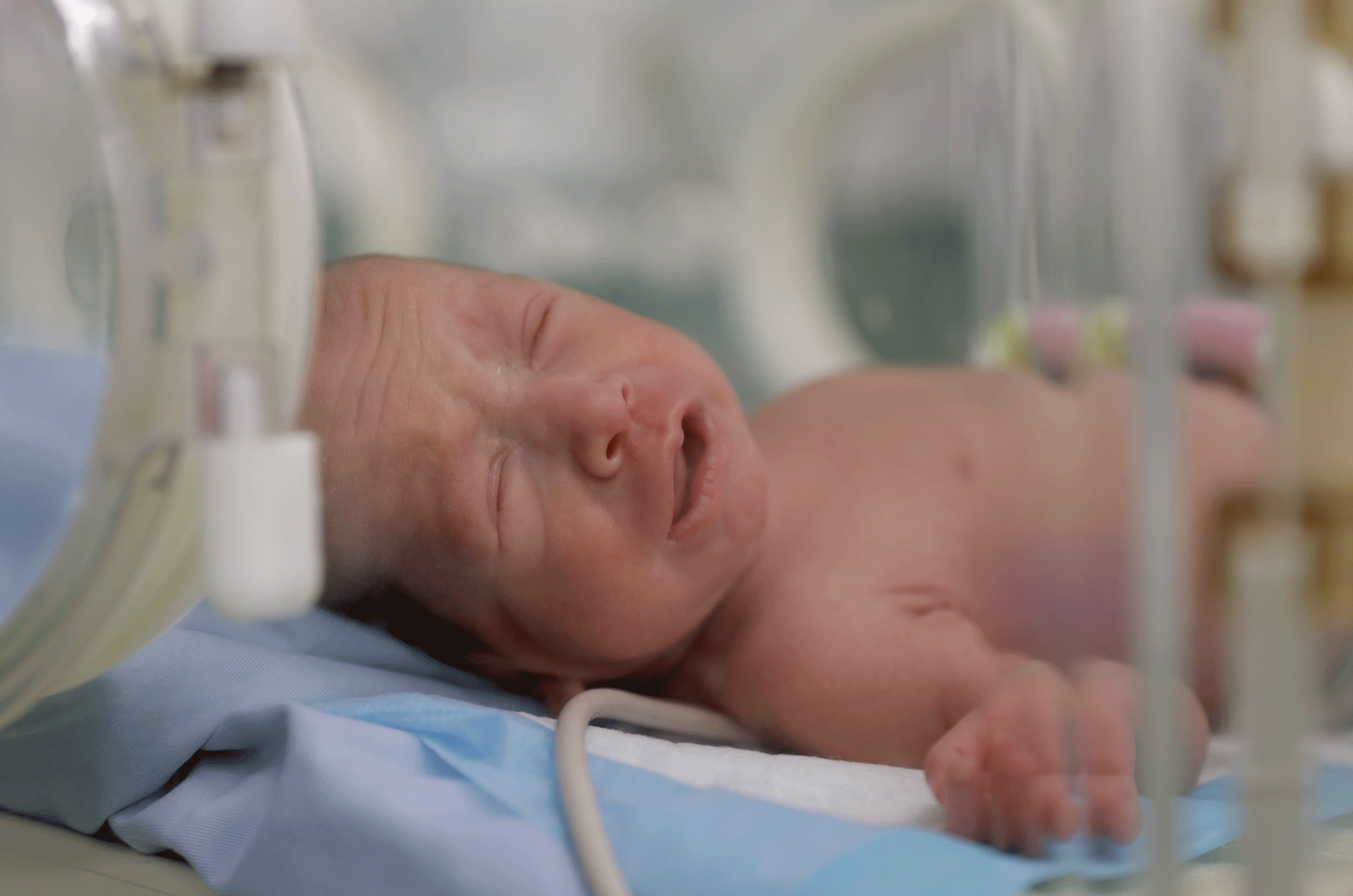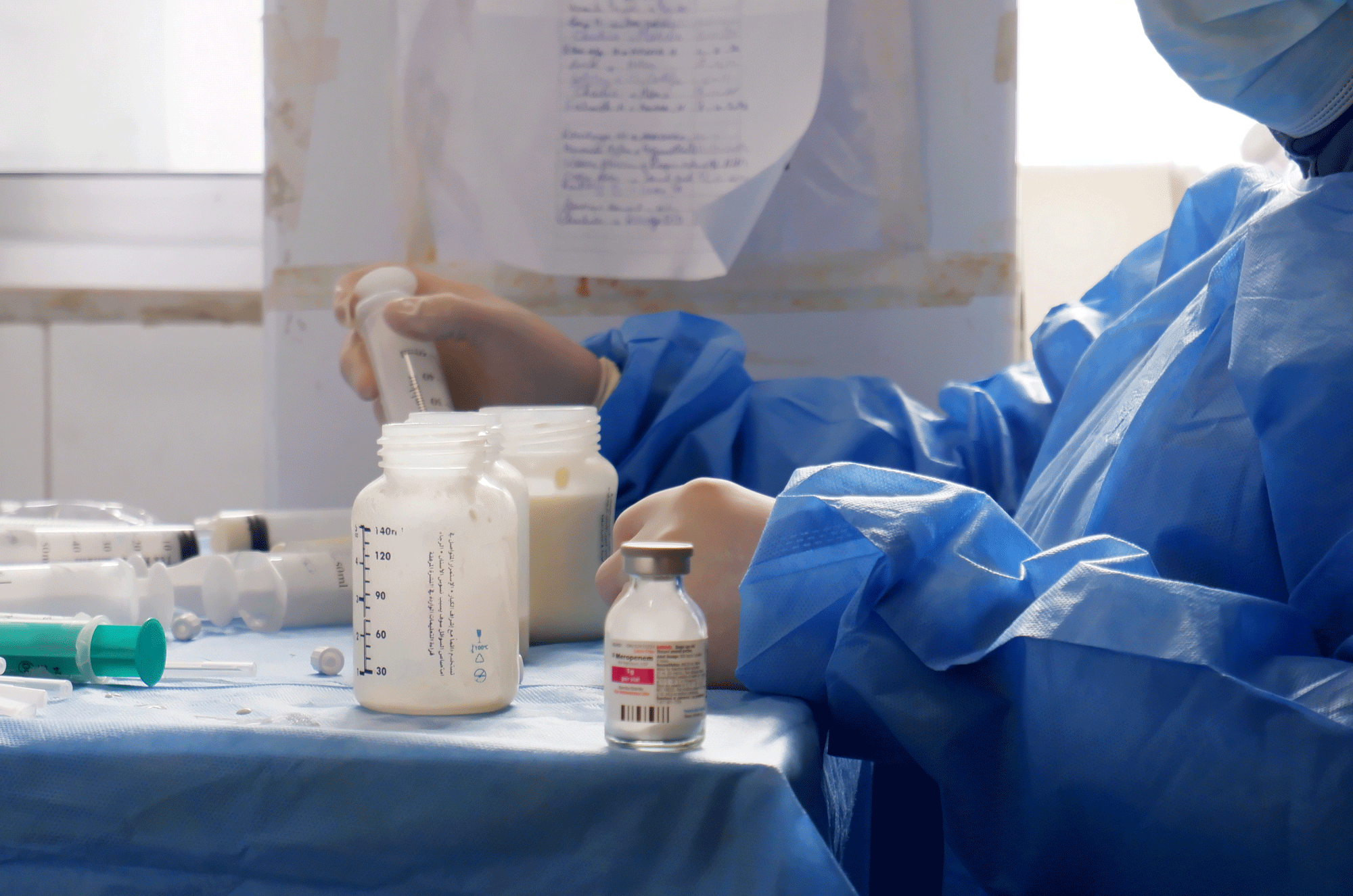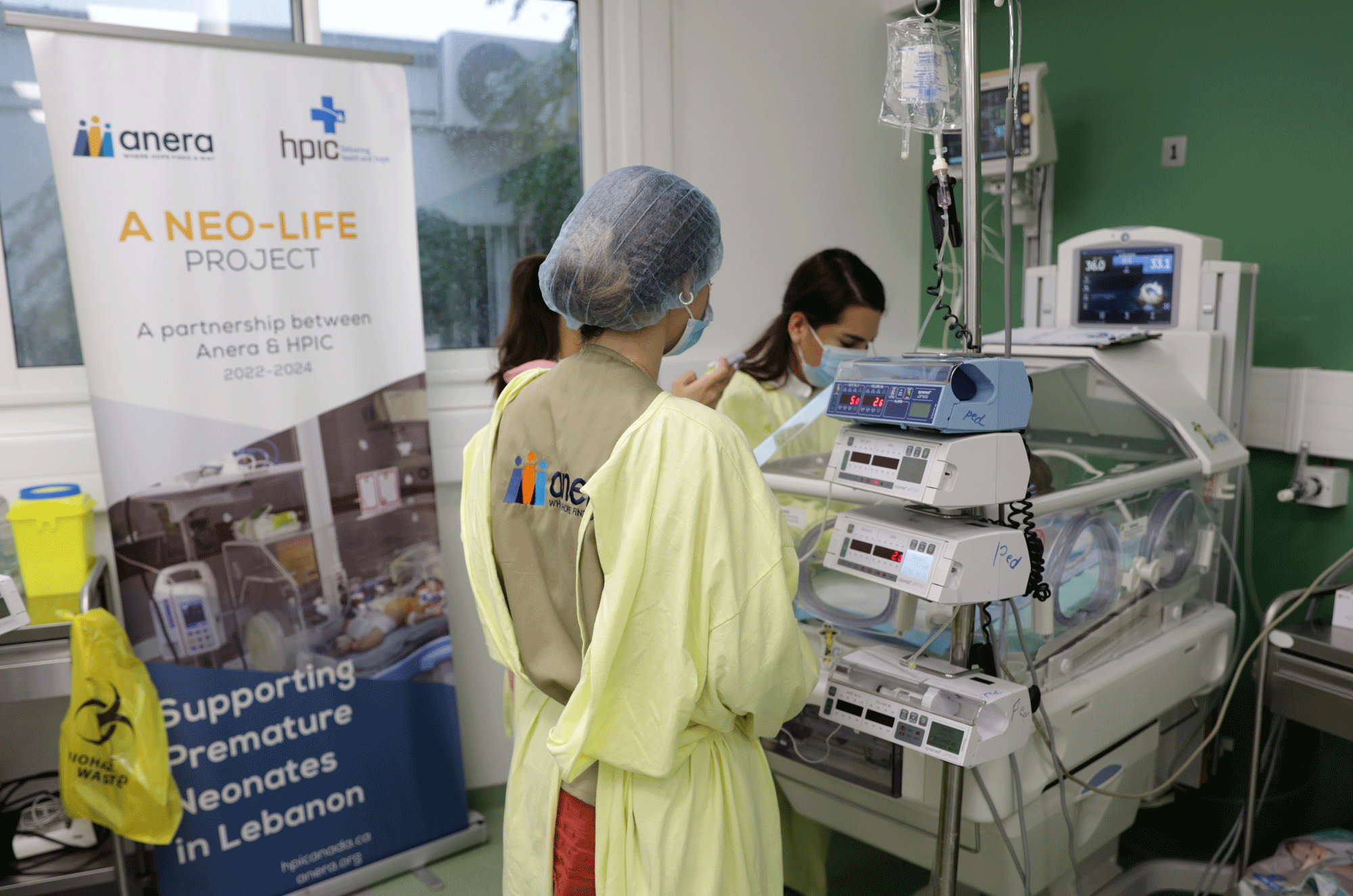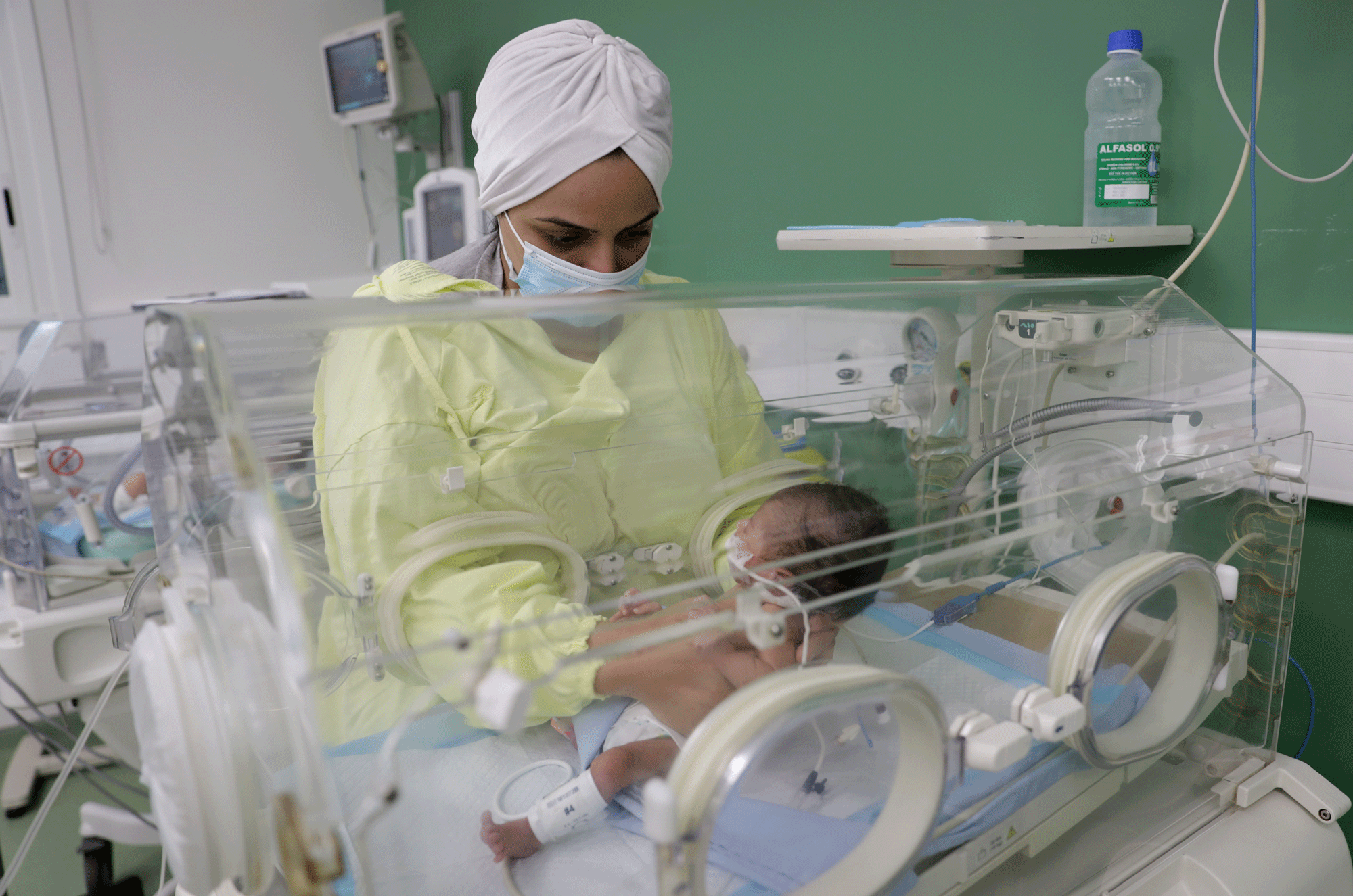Dec, 2022
A recent HPIC shipment supports neonatal healthcare in Lebanon. Anera has distributed the medicines to the NICU departments at Beirut Karantina Hospital and Tripoli Governmental Hospital.
Essential healthcare services for mothers and children have drastically declined in Lebanon since the onset of the 2019 economic crisis. A combination of exorbitant prices and inadequate government support left many without basic medical care. Many parents are unable to pay for their children’s medical treatments.
UNICEF reports that pregnancy-related deaths have tripled since these crises. One out of three children have lost their access to healthcare. In 2021, UNICEF adds, an average of 18,000 babies were born preterm every year in Lebanon.
Premature babies are expected to be treated at a neonatal intensive care unit (NICU) but insufficient services, facilities, and supplies have created an emergency situation.
“The NICU ward is under heavy pressure due to the high cost of running the department. With the crash of the local currency, we struggle to continue operations as usual,” explains Nasser Adra, director of Tripoli Governmental Hospital.
To respond to this medical crisis, Anera and Health Partners International Of Canada (HPIC) partnered on a new project, called A Neo-Life. The initiative supports the healthcare needs of premature babies in Lebanon.
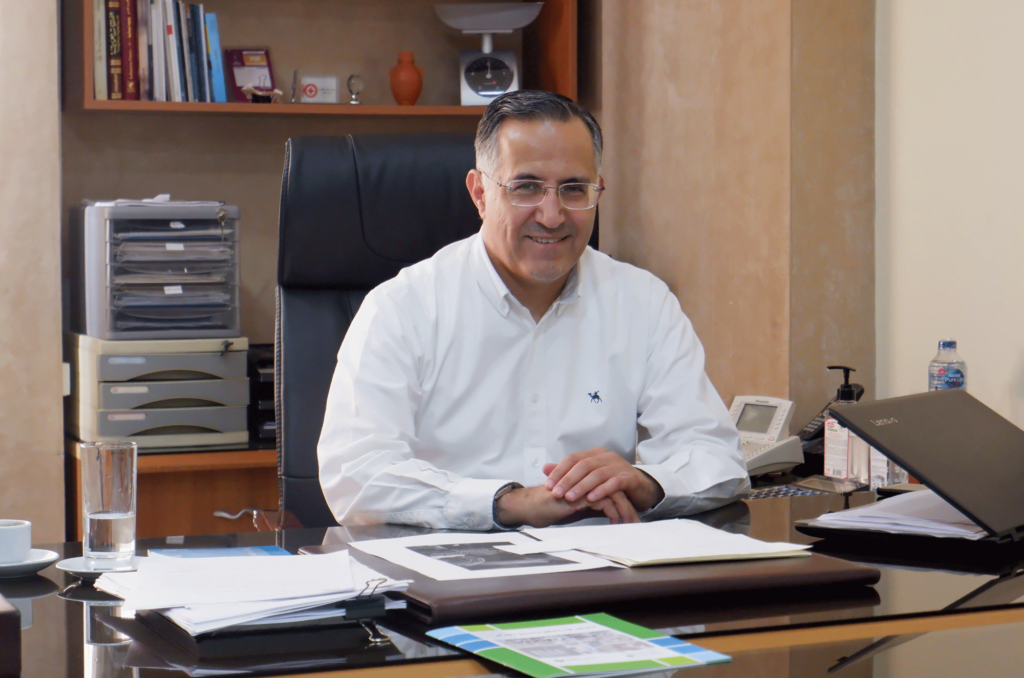



"The NICU ward is under heavy pressure due to the high cost of running the department."
The most recent medical aid donation contains 14 different medications and medical supplies that directly benefit preterm infants. Given the high cost of some of the items, the donation is helping to reduce hospital bills for struggling parents amid the national economic collapse.
Premature babies are at higher risk of illnesses and complications in the first weeks of life. Some of the preterm infants (born before 37 weeks) are also born with medical conditions neural tube defects. Most babies at the NICU stay for about two weeks, but some may be kept three months or longer depending on the baby's condition.




“Mothers can no longer afford doctor visits during their pregnancy.”
“Families could previously afford to cover medical costs but that was no longer possible after the banks cut off access to their savings,” explains Mabelle Makary, a second year pediatrics resident at Karantina Hospital in Beirut. "The banking and currency crises paralyzed a large portion of the population, pushing them further into debt."
“We have cases where parents cannot pay the bills and abandon their babies at the ward," says Fatima Darwish, a NICU nurse and supervisor at Tripoli Governmental Hospital.
"The last case was just three weeks ago. A father left his baby here, swearing he couldn’t afford treatment. He returned after a couple of days out of guilt. The baby is still at the ward under antibiotic treatment for his respiratory illness.”
The desperate financial conditions are forcing many pregnant mothers to skip important routine check-ups. Many can’t get essential medications and vitamins during their pregnancy.
“Mothers can no longer afford doctor visits during their pregnancy, which has negative implications for their health, and the health of the baby,” Adra says.
Makary tries to be optimistic. “We hope one day all babies in Lebanon will be fully insured and cared for without the risk of interrupted or discontinued treatment.”
“We all have a duty to help parents support their own children," Darwish says. "Sometimes parents come and ask for diapers or milk, and the staff pay from their own pockets to support them.”



